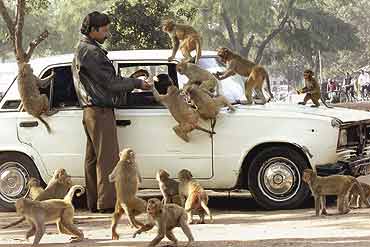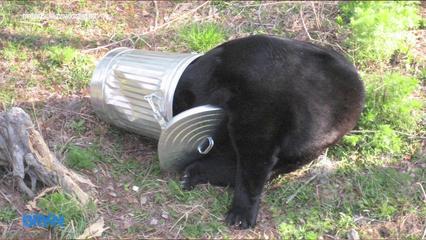
These monkeys are crowding around this man for food. Perhaps this is a learned behaviour acquired from previous feeding experiences.
Animals typically take advantage of food offered by humans or crumbs that have fallen on the ground. This creates a relationship between animals and humans called ‘dependency’. According to Australian Wildlife Society, animals that have developed a dependency on food sources offered by humans typically become less efficient and less inclined to forage or hunt for food.
In addition, animals that rely on humans often become habituated to human interaction and lose fear of humans. This can be harmful for both parties as:
(1) wild animals will become a nuisance to residents in the area
(2) animals will become vulnerable to hunters and poachers since they assume every human will offer them food, and
(3) animals travelling towards urbanized areas or areas with human activity will be endangered to moving vehicles
Furthermore, wild animals that are accustomed to receiving food from humans are naïve towards human motives. Since they do not have fear towards humans, wild animals will approach anyone whether they are animal lovers or not.

This black bear rummaging through the garbage can could potentially be stuck or injured since it is defenceless against any attacks.
Overall, dependency creates a bigger risk for wildlife than for humans. Bears, for example, sometimes travel to urbanized areas to rummage through garbage bins for food. Often, these bears tranquilized for relocation or put down (if the bear is a frequent visitor to the neighbourhood). Yosemite National Park in 1998 had over 1,100 cars broken into by bears, which caused more than $630,000 in damage. The harm towards wild animals outweighs the harm towards humans, as deaths or injuries caused by wildlife are often rare compared to deaths caused by humans to control the animals.
